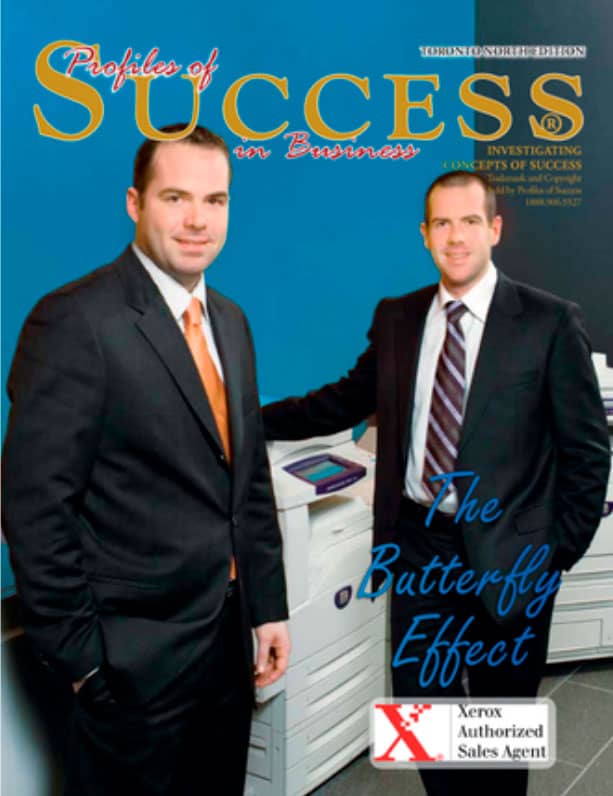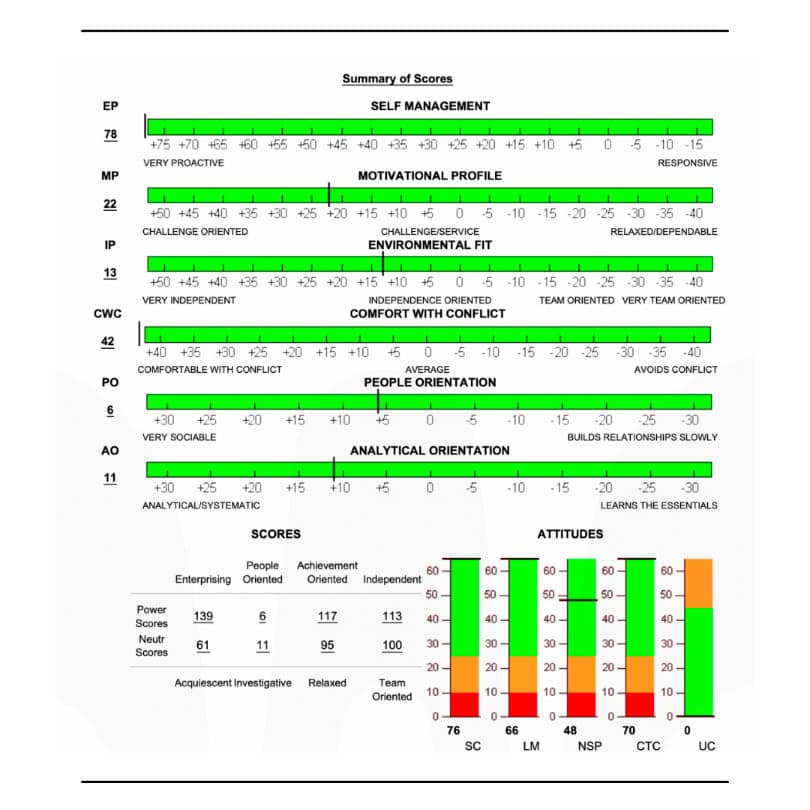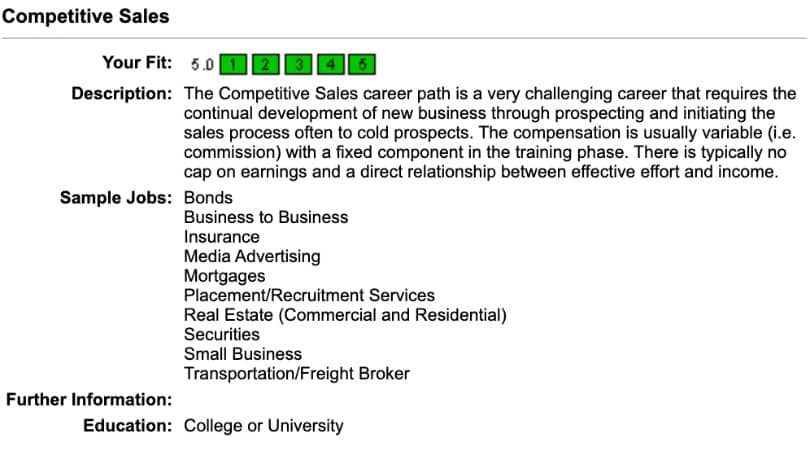On my first day with Workwolf, while I was working from home, some were allowed in office, and as I waved hello to the team for the first time through my webcam, I met Chief Revenue Officer Stephen Brennan with a smile and a wave, and after a brief introduction, he was gone in a blur.
Although start-ups are notorious for being fast-paced and energetic, Stephen (in addition to our CEO himself,) is one of the most dynamic workers on the team. He’s competitive, extremely motivated, and always focused.
From commission to c-level
Although he’s still a kind and very personable colleague/executive team member, Stephen is exactly who you’d imagine to be the head of sales and in charge of driving revenue for the company. As such, it comes as no surprise hearing that he’s also the strategic advisor for MAGNUS HRS, a healthcare recruitment solution company, and former owner of Butterfly Business Products, now known as Hub Technology Group.
But as it turns out, Stephen’s personality has an even deeper connection with his career path.
While this blog post was initially intended to cover his Packfinder results and a bit about his work background from before his current positions with Workwolf and MAGNUS, Stephen and I ended up spending nearly two hours discussing the intricacies of finding positions that suit your personality and natural predispositions, and being honest not only to the interviewer or employer looking at your resume and job application, but further to yourself in your career.
Perhaps the first indication of Stephen’s personality comes from his background in competitive soccer. He thrived in the competitive environment, and recalls always being result-oriented. Naturally, one of his first full-time jobs was in a telemarketing position when he was 21 years old.
It was tedious, unfulfilling work having to hand over sales opportunities to salespeople once the hard work of cold-calling had been completed. He was confined to a desk and had to talk to clients on the phone, when all he wanted to do was go and meet people and get away from the mundane environment of the office setting.
And even though the position was stable and paid a salary wage, Stephen found the position wasn’t a good enough use of many of his natural abilities in sales and customer service.
“Every day at lunch, I’d buy a newspaper,” he says, “and look through the job postings; I wanted more; I wanted an opportunity to help me realize what I believed was my highest potential.”
And yet, his dedication and the taste of a sales environment kept him at that first company for two and a half years, knowing he would need to first build up a foundation in sales and working in the copy and business product service industry.
At 24, after deciding he needed more from his career, Stephen took a self-assessment through Self Management Group as part of an application process with a potential employer.
This assessment asked him questions about his personality and his drive in his career, and although he didn’t see the results afterwards, he knew the assessment was measuring his motivation, how he worked under pressure and without supervision, and other details that were specific to the job he was applying for.
Of course, he recognized even then that this was not an inexpensive test for the hiring manager to offer him, so he knew his candidacy was being taken seriously and was more so to confirm that he was the right candidate for the position.
The role at hand was a sales representative position with Butterfly Business Products, which provided Stephen a better opportunity for his potential. It was high-pressure and 100% commission-based, so the stakes were higher, but this also offered him an opportunity to make the amount of money he aspired to make but at a risk.
Still, Stephen was confident in his abilities to thrive in this environment that when the hiring manager told him based on his assessment results, he thought Stephen would be a great fit, Stephen said heknew he would be.
To no one’s surprise, he found he was best-suited for a sales leadership position—he was driven, committed, determined, and most importantly, he wanted and was willing to work for this kind of success.
He joined Butterfly Business Products and quickly became an asset to the company. Within the first six months of working there, he became one of the top sales representatives at the agency, and within the year was by far the top sales representatives in the company. Soon thereafter, he became a sales manager.
With the goal of earning six figures before he was 30 years old, Stephen knew he needed to move up in the company, or he needed to leave. So, at the age of 29, he bought the company and rebranded and extended the company to include business products beyond the machines and accessories they originally sold.
Although there was now the massive responsibility being placed onto his shoulders at that point, Stephen says “there was no difference the day before or the day after, except signing the cheques.”
With that said, in addition to the added responsibility of owning and growing the business, Stephen was then responsible for continually finding ways to continue to develop the company, especially with the rise of digital platforms over printed ones.
And in the business of copiers—Canada’s largest agency for Xerox machines, in fact—he knew that keeping the business relevant and pivoting within the needs of the businesses they worked with were crucial.
So, he created a supplies division to expand the breadth of their company, and in 2010, he started a sister company that sold office supplies, so that companies who were buying his Xerox machines were also able to purchase their ink and other supplies in one place.
This not only brought constant cash flow into the company, instead of their monthly billings for the copiers and their costs for maintenance and regular usage, but also allowed the company the ability to branch out and eventually diversify, as technology began to push out and minimize the need for printing at the rate it had for the previous decades.
And while the iPad and other technological advancements were restricting the need for printing in office settings, Stephen still managed to keep the company afloat by bringing in a print infrastructure to load a software that would manage all the printers—knowing what needed to be fixed or maintained—and automatically bill the companies.
The proof
Whether Stephen saw himself as such, I think there’s no denying he found success in his career, given the fact that he was one of the cover models of Profiles of Success Magazine.

Photo courtesy of Profiles of Success Magazine.
Of course, with owning and growing the company came hiring and overseeing many sales representatives, among others, came the added responsibility of finding those who would thrive in the environment like he did. And so, he began utilizing Self Management Group’s self-assessment for his hiring.
After nearly 19 years of working in, then running, then owning a successful business, I figured Stephen would have a thing or two to share with others looking to hire, as well.
His first piece of advice? Look for the red flags.
On many self-assessments, namely those by Self Management Group, like Packfinder—which is now integrated with Workwolf’s platform and Digital Work Passport—there will always be signs of a candidate’s personality being more or less of a fit depending on the skills and attitudes that are necessary for a specific position and work environment.
For Stephen, a competitive, strong-willed, driven, pro-active worker, he tends to look for personality types that lean on the left-hand side of the scales, as demonstrated below.
 This, he says, is a great indicator of a candidate’s ability and drive to “go out and get things done” as opposed to “waiting for things to come to you”; a score of +70 and above tend to be an indicator of someone who is highly pro-active and self-motivated.
This, he says, is a great indicator of a candidate’s ability and drive to “go out and get things done” as opposed to “waiting for things to come to you”; a score of +70 and above tend to be an indicator of someone who is highly pro-active and self-motivated.
And Stephen’s results—well, the proof is in the pudding.

With that said, he notes that assessments are only part of a comprehensive screening process. “The other part,” he says, “is finding good interview questions.”
While the assessment can offer fairly straight-forward feedback on a candidate’s work ethic or environment preference, it can also lend itself to interviewers, allowing them to ask questions like, “what has been the greatest struggle you’ve ever endured?” and “can you name an instance where you have faced an obstacle or challenge in your work that you were unable to overcome or accomplish?”
“A lot of the time, candidates try to always spin their challenges,” Stephen notes. “They try to make a positive out of a challenge, or even state that they’ve never endured a challenge that they’ve failed, and while that sounds like a good thing, that’s a major red flag for me. If you’ve never failed, you’ve never taken a chance where you have the ability to lose.”
This type of personality, he says, is also indicative of the potential to not deal with failure well, and may result in quitting instead of persisting and learning from adversity.
The power of potential
One piece of advice Stephen reiterates was game-changing for him was to keep in mind the potential that candidates exude in the interview process. One of his most successful hires from his business first applied to his company without what Stephen expected and would want to hire right out of the gate, so to speak.
But more importantly to him, this candidate was committed, was willing to learn, and proved himself to be loyal and hard-working. So, Stephen took him under his wing, and fostered his growth and motivated him to become the employee he knew he had the potential to be.
And he did become that employee. He overcame obstacles and used moments of failure to motivate himself further. And while he wasn’t exactly the candidate Stephen was looking for when he started, he proved to Stephen that looking at candidates and what they can bring to the company long-term is more often is better than short-term.
So, what if you’re looking to hire a recent graduate, or someone who is new to the field and needs training and development to find if they have what it takes in this industry? What can you look for in candidates who may have exactly what you’re looking for, but don’t yet have experience to know for certain yet?
Of course, each industry will have different needs and wants, but Stephen asks himself while hiring, “Can they self-motivate?”, “What are their objections?”, and if looking for a managerial position, “they may be a good sales person, but are they a good leader?”
After using Self Management Group’s assessments for years, now, Stephen says he’ll never go back to hiring without one.
As such, he and Workwolf CEO Erik Simins decided to incorporate Packfinder into the company as a freemium to both allow users to get a taste of what the company is all about, and to allow job seekers to get a leg up in the fierce competition that is today’s employment market.
And if you’ve ever used an assessment before in your hiring, you’ll know they run for anywhere between $75-150 or more each, so you can imagine how much, over time, this assessment will save you on hiring.
As well, even if your candidate is not chosen for a position, they still walk away with a positive experience and a free career fit assessment that can benefit them in their on-going search.
Then, when these candidates apply to the next position, they can use their results from the assessment as leverage to show in what ways they’d be suitable for the position. It truly is a win-win.
Conclusion
Self-assessments can be beneficial to both hirers and recruiters and job seekers alike by offering both sides of the hiring cycle crucial feedback about the candidate’s abilities and natural predispositions to succeed in a specific position or job environment. They can also be enlightening for those on the interviewing side and can provide feedback that can either prevent a mis-hire or help show the potential in a candidate you may have otherwise disregarded.
If you’re interested in benchmarking your potential candidates and offering free Packfinder assessments, too, you can sign up for a free business account and create your own link to track your candidates’ results and rank them based on suitability.





